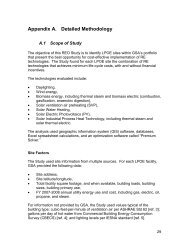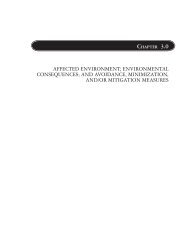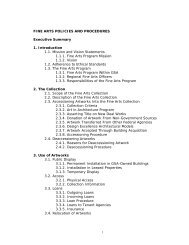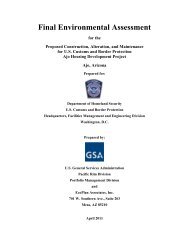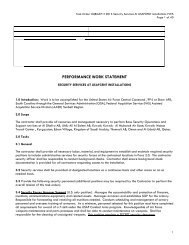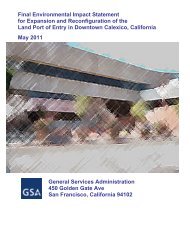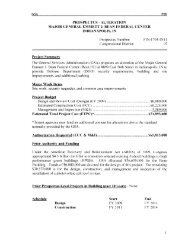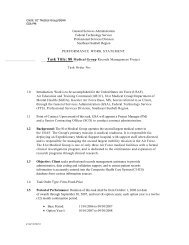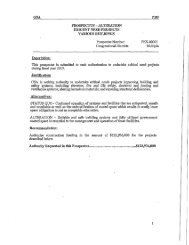Sustainable Development and Society - GSA
Sustainable Development and Society - GSA
Sustainable Development and Society - GSA
Create successful ePaper yourself
Turn your PDF publications into a flip-book with our unique Google optimized e-Paper software.
<strong>Sustainable</strong> <strong>Development</strong> <strong>and</strong> <strong>Society</strong><br />
Measuring <strong>and</strong> Reporting<br />
Sustainability Principles<br />
From “Beyond the Triple Bottom Line: Measuring <strong>and</strong> Reporting on Sustainability,”<br />
Occasional Paper, Victorian Auditor-General's Office, Melbourne, June 2004.<br />
Adopting the sustainability principles<br />
impacts on all aspects of an<br />
organisation’s business, from<br />
planning to operations to governance<br />
arrangements…<br />
First <strong>and</strong> foremost, applying the<br />
sustainability principles means going<br />
beyond traditional financial reporting to<br />
measure <strong>and</strong> report on at least the<br />
environmental, social <strong>and</strong> economic<br />
dimensions of performance . . . However, as<br />
critics of these models have pointed out,<br />
they use a reductionist approach to<br />
measuring <strong>and</strong> reporting on sustainability.<br />
That is, they:<br />
• Break sustainability down into three or<br />
more pillars<br />
• Break each pillar down into a series of<br />
topics<br />
• Break each topic down to a series of<br />
performance indicators<br />
• Measure each indicator separately<br />
• Use ‘scientific approaches’ to measure<br />
each indicator.<br />
The reductionist approach is inconsistent<br />
with the concept of sustainability, <strong>and</strong> its<br />
principles, for two main reasons. Firstly,<br />
sustainability is not a single thing. It is<br />
multidimensional… Secondly, sustainability<br />
is a vision of wholeness. Breaking it down<br />
into disconnected parts <strong>and</strong> then studying<br />
the parts individually will not help us<br />
underst<strong>and</strong> the relationships between the<br />
parts that make up the whole. Instead,<br />
taking the reductionist approach can lead<br />
us to oversimplify the complex nature of<br />
sustainability . . .<br />
Applying sustainability principles has the<br />
potential to improve performance, in the<br />
short <strong>and</strong> long terms. For this reason,<br />
governments in many countries have<br />
adopted sustainability policies, resulting in<br />
an explosion of sustainability initiatives…<br />
Applying these principles is not a simple<br />
task. The interrelated nature of<br />
sustainability complicates all aspects of<br />
organisational life, from planning to<br />
operations to measurement <strong>and</strong> reporting…<br />
The currently available measurement <strong>and</strong><br />
reporting tools apply some of the principles<br />
well. However, approaches that capture the<br />
relationships between the pillars are still<br />
evolving. Approaches to measuring <strong>and</strong><br />
reporting on intergenerational equity are<br />
even more rudimentary.<br />
99




